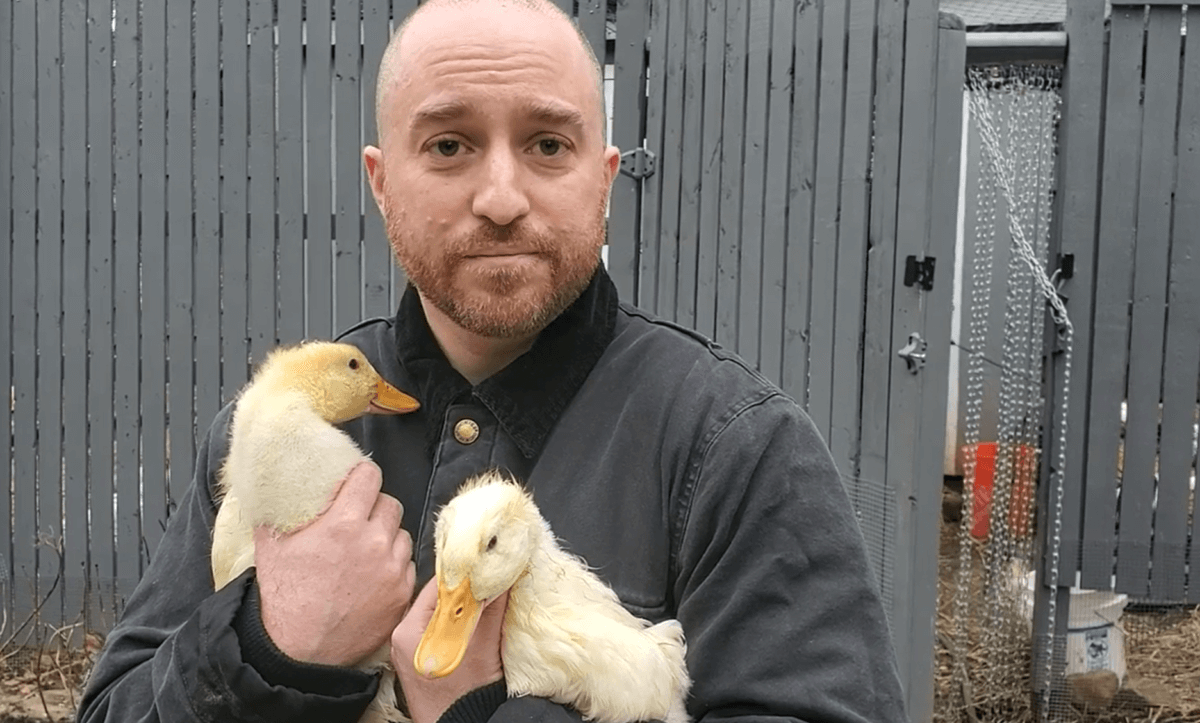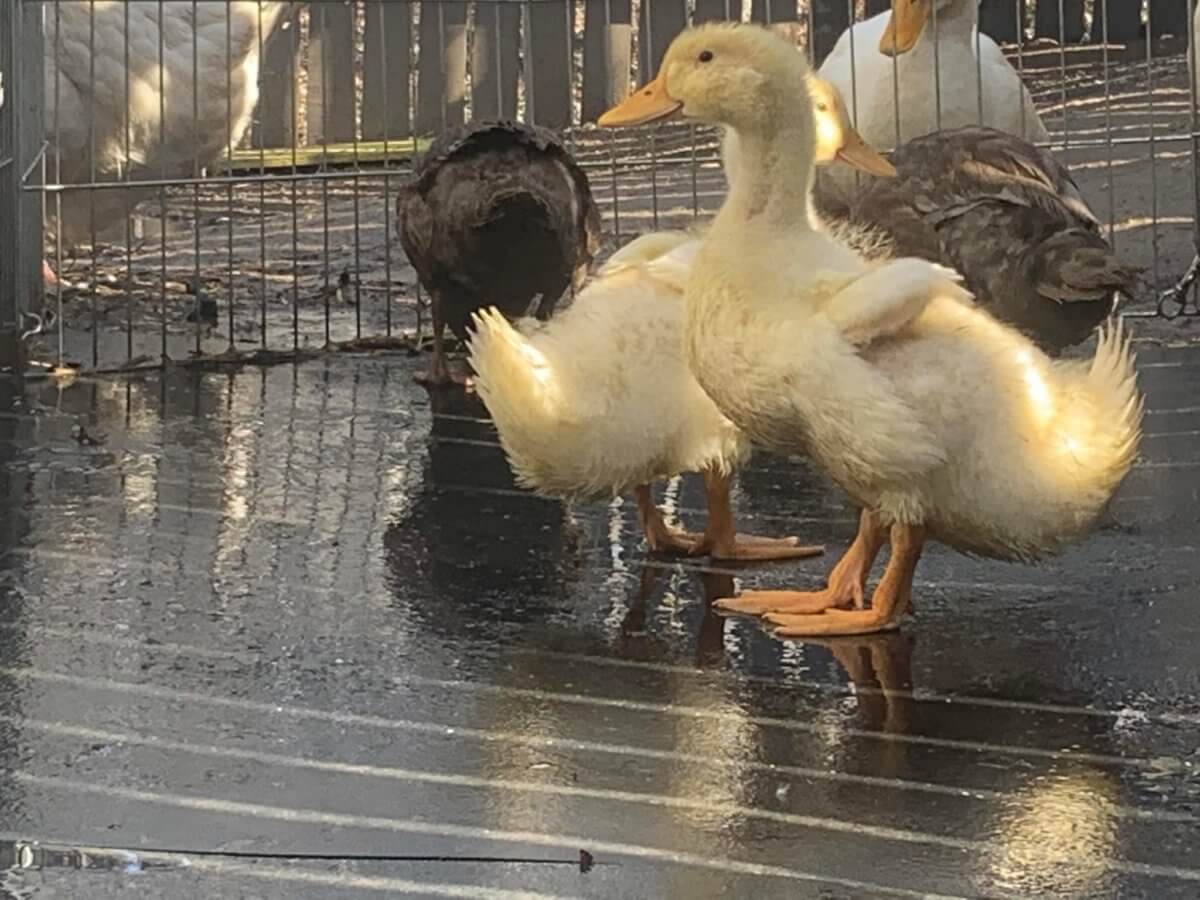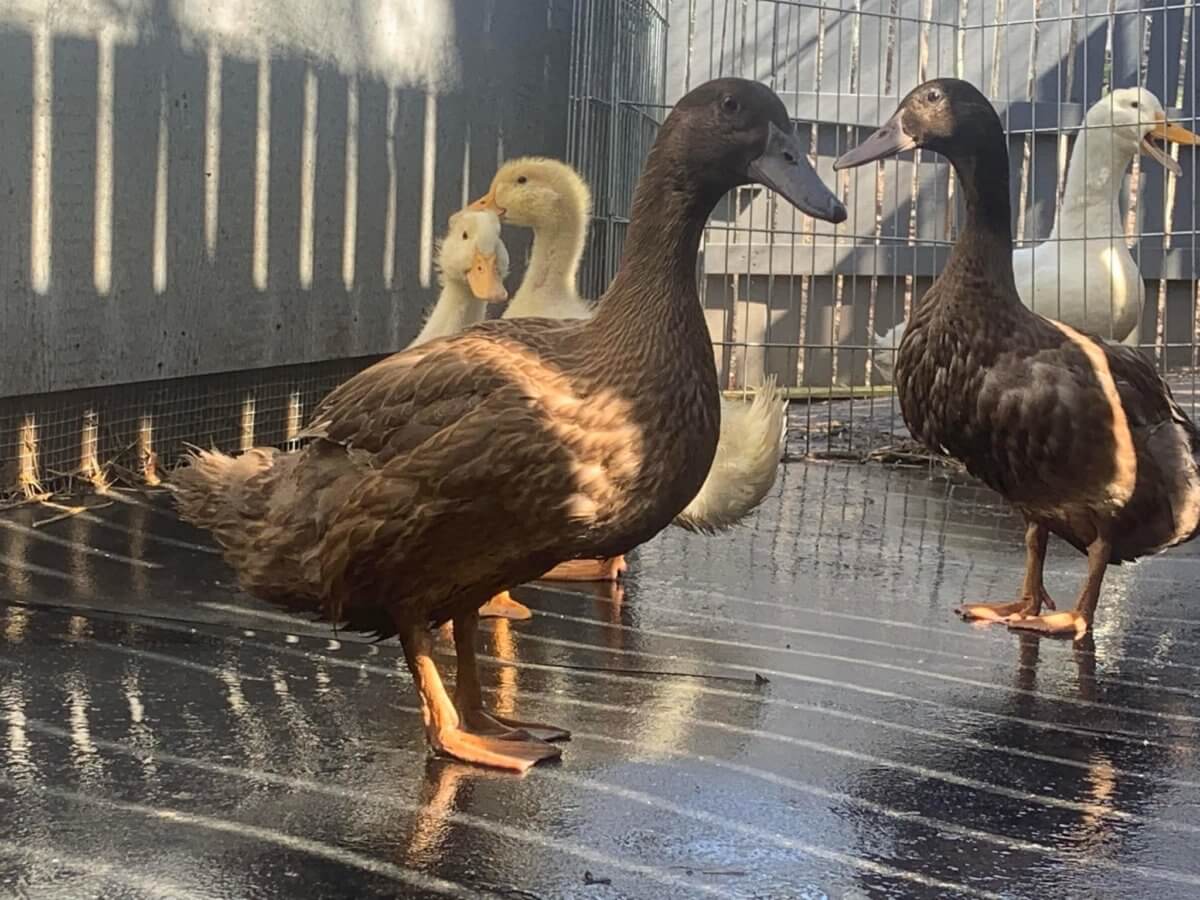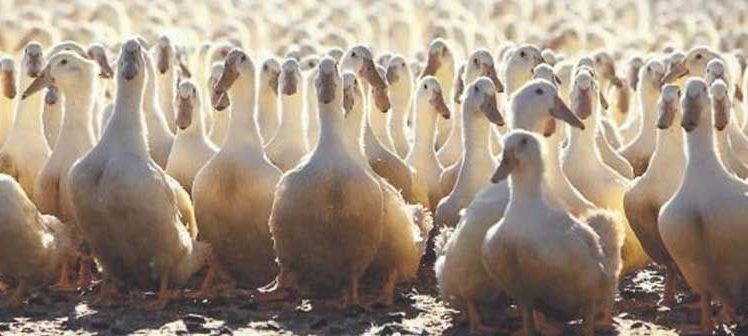Two abandoned ducklings rescued near Queens park are being treated for abuse at Long Island shelter

At first glance, the rescue of two ducklings near Astoria Park last week seems like a warm and fuzzy tale just in time for the Easter season. However, the man who rescued them described something far more nefarious.
John Di Leonardo, the anthrozoologist and president of Long Island Orchestrating for Nature (LION) in Riverhead, says he was alerted through social media that the two ducklings were spotted in Astoria Park with a very young chicken. Two LION volunteers located the ducks across the street from the park “looking terrified” behind the fence of an apartment building, but the chicken wasn’t found, Di Leonardo said.
The volunteers had to negotiate with the landlord for hours before they were allowed onto the property to rescue the ducklings, which were brought to the shelter in Riverhead where they are recovering.

The two ducklings are no more than 8 weeks old and had their toes cut off, Di Leonardo explained, adding that fowl are exempted from federal protections,” including the Animal Welfare Act and the Humane Slaughter Act, so they are routinely raised in filthy, windowless sheds by the thousands. Due to the stress of their confinement, they may self-harm and cannibalize one another, but rather than bettering their squalid conditions, farmers cut off their toes to minimize the harm they can do to themselves or others.
“Baby birds are thinking, feeling persons, not Easter photo ops, school science experiments or trash to be discarded when you don’t want them anymore,” Di Leonardo said. “Abandoning a chick or domestic duck is cruel and illegal, and no different from abandoning a dog or cat. Domestic ducks have tiny wings, large bodies and no camouflage. They don’t know how to forage adequately and cannot fly or migrate. They are as different from wild ducks as a housecat is from a tiger and are literally sitting ducks for predators and cruel people when abandoned to the wild.”
The two ducklings rescued near Astoria Park were emaciated and suffered from bumblefoot, a type of staph infection that is common in ducks.

Di Lorenzo and his volunteers rescued more than a dozen waterfowl and geese from a Forest Hills home in January. The last of those rescued birds were recently placed in their “forever home.”
While his animal advocacy organization rescues hundreds of birds each year, he said the average person can save 200 baby animals just like the two ducklings annually simply by leaving them off their plate. LION is launching a major campaign to end the exploitation of chicks, ducklings and other baby animals during the spring, when they are abandoned en masse after school hatching projects and around the Easter holiday. Di Leonardo said the adage “Adopt, don’t shop” applies to all animals and that animal abandonment is a crime.
“When introduced into nature, non-native species disrupt natural ecosystems, which rely on the migratory behavior of wild ducks and geese and the natural recovery period that comes with their absence,” Di Leonardo said. “They can also spread disease to native species, including highly pathogenic avian influenza, which is deadly to humans and was recently detected in a Suffolk County flock. Should these domestic ducks and geese breed with wild birds, their offspring will likely be flightless as well, further disrupting the ecosystem and exposing the young to the same dangers as their domestic parent. The National Park Service has noted that ‘threats from invasive species play a critical part in [the] loss of native biodiversity,’ and recognizes that invasive species frequently start out as pets.”
For more information, visit the LION website here.



